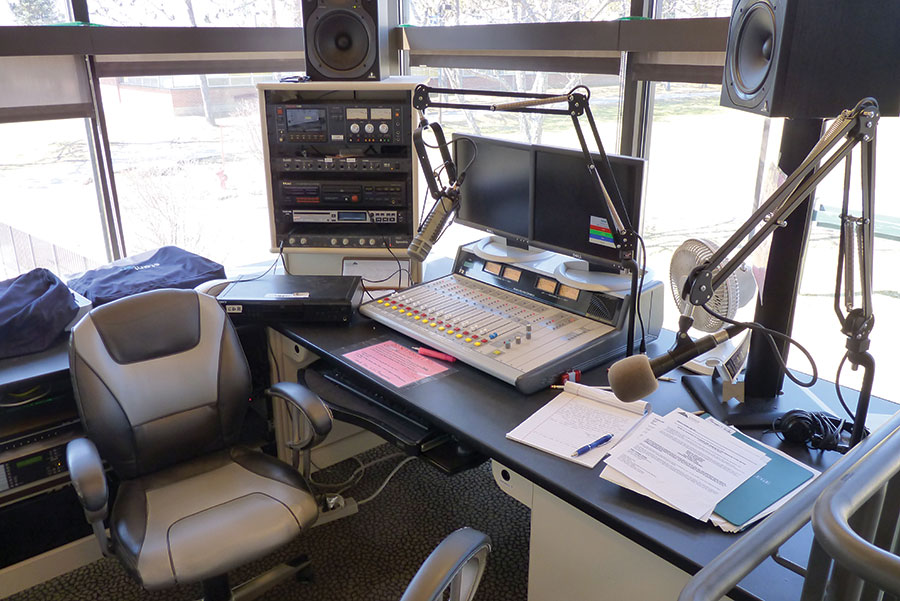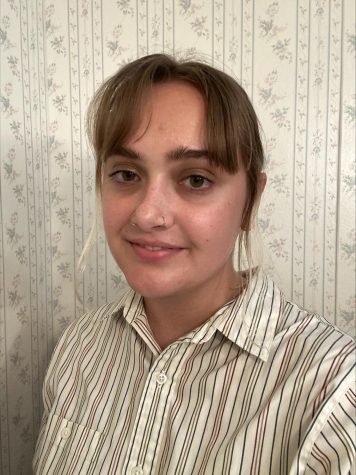Status of WJSC up in the air
WJSC broadcast license up for sale
WJSC, NVU-Johnson’s radio station may soon divest itself of its Federal Communications Commission’s broadcast license, effectively ending its longtime status as a broadcasting entity. Administration officials, however, stress that programming will continue and possibly expand as it transitions to a streaming platform.
Such a transition is already on the near horizon at WWLR, NVU-Lyndon’s longtime radio station, whose FCC broadcasting license has been sold to Vermont Public. It plans to expand the reach of its classical broadcasting station farther into the Northeast Kingdom.
Last December, NVU- Lyndon Campus Executive Director Jonathan Davis announced the pending sale of WWLR’s broadcasting license to Vermont Public.
Depending on the FCC approval, Vermont Public will broadcast their signal through the WWLR’s transmitter, although it swill not be using any on-campus facilities. According to Davis, this announcement comes as the interest in radio has hit an all-time low, while streaming podcasts have become a less regulated and more convenient form of content delivery.
Davis seemed wistful about the sale of WWLR’s broadcast license, acknowledging that although a podcasting platform will have advantages, something will also be lost. “When you consider athletic events and other events that once upon a time were probably broadcast over the radio, it’s now [going to be only streamed], whether it’s commencement or basketball games or other events,” he said, noting that conventional radio is a technology that hasn’t been able to keep up with the popularity of streaming services.
Remaining wedded to the longstanding status quo, Davis says, is simply not sustainable given present day realities on both the Lyndon and Johnson campuses. “You have to look at the return on investment and then also the cost of aging infrastructure to keep it going,” he said, referring to having to be compliant with FCC standards, and making sure public files are up to date.
Davis said that by March a streaming service will hopefully be underway for the Lyndon station: “So right now, they [WWLR] continue to operate as a terrestrial radio station, and we won’t transition to a streaming format until both parties have heard from the FCC to approve the sale.” According to Davis, this period of time could be anywhere from 30 to 90 days. When asked about benefits of a streaming service or podcast, Davis said, “One of the things I’m thinking about for the future of Vermont State University is for the students at different locations to share content.” He also mentions that there is work to do prior in order to make sure Lyndon has the right equipment, estimates for which run anywhere from $20,000 to $50,000. Funds to pay for the transition would come from the sale of the FCC license, somewhere in the $80,000 range.
As Davis reflects on the end of an era, he says, “I wasn’t at Johnson at the time, but years ago at Lyndon, when the radio station was part of the curriculum, you had students in the meteorology department who were getting their first taste of broadcasting by getting on the radio and reading their forecasts.”
Depending on the year and student interest, WJSC has had a tradition of eclectic, dynamic programming, advertising itself as “free form radio,” although student interest of late has waned as the station struggles to find interested DJ’s to work at the station.
As of press time, Johnson’s WJSC’s license has not been sold, but according to Michele Whitmore, NVU-Johnson’s campus executive director and the dean of students, a party is interested in purchasing the WJSC license.
Partly in response to low student interest on the Johnson campus, Middlebury College has been providing assistance to WJSC’s operations and has expressed an informal interest in purchasing the station according to Patricia Turley, general consul for the Vermont State College System.
“Students are already more interested in podcasts and streaming, and without the confinements of FCC regulations, students will have access to a more flexible environment,” she said.
When asked about the future of the Johnson campus’s radio station and if it would move to a streaming platform, Whitmore said, “I would think the variety of music genres and adding podcasts to please a greater audience is a huge benefit. Partnering with other Vermont campuses would be another positive,” echoing Turley’s assessment of advantages to shifting to a new platform.
This endeavor would require updating the already in-place equipment on the Johnson campus, as is the case at Lyndon.




